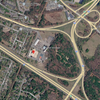Board debates policy on campaigning
GUILDERLAND As elections loom, the school board on Tuesday debated changes in its policy on campaigning.
The proposal, to be voted on at the next meeting, on April 29, forbids any campaigning on school grounds except on Election Day, at least 100 feet from the polling place; during board candidate forums; and at school-board meetings.
The proposed policy also points out that students have a constitutional right to free speech and may advocate for candidates on school grounds as long as they are not disruptive.
Catherine Barber, an incumbent seeking re-election who chairs the board’s policy committee, said at Tuesday’s meeting, “We can’t limit the content,” meaning if the school grounds were opened up for board candidates to hand out flyers, anyone could do so on any topic.
“You can have a public forum during a certain time period,” countered Peter Golden, another incumbent who is circulating petitions for re-election although he says he hasn’t yet decided if he’ll run. Golden also said, “We ought to expose students somehow to some of this.”
“The commissioner of education has been concerned about the appearance of the use of school property to advocate a position,” said Barber. “It quickly gets out of control...Who enforces that?”
“I’m really very concerned...about shutting down the democratic process,” said board member Hy Dubowsky, describing the school as a public institution. “We have elections for a reason, Cathy.”
Dubowsky said newcomers face a “stacked deck” against incumbents and he would like to “open it up for certain times” and expose the students to it. In a school election, said Dubowsky, candidates want to reach the parents; that’s why the list of student addresses used by the teachers’ union was so valuable, he said. (See related story.)
“It’s good for kids to see democracy in action,” agreed board member Barbara Fraterrigo, who was stopped from distributing flyers at school events last year. “We’ve done this for years and years.”
Fraterrigo said that limiting leafleting to the campaign season is “a compromise I could live with.”
“It would be open to all,” she said. “The great thing about America is the sharing of ideas...It makes us a better nation.”
Board member Colleen O’Connell, who was re-elected last year, told Golden and Fraterrigo their position was “totally inconsistent with the position you had on school security.” She also said that calling it anti-democratic is elevating leafleting to “something it isn’t.”
She said, too, that surrogates rather than the candidates were handing out literature.
“I was at all these events until we were kicked off,” objected Fraterrigo.
“My vision is we set it up well back from the school,” said Golden, allowing people a choice as to whether they want to meet candidates and accept their flyers.
“I don’t think it was our intent to bar free exchange of ideas,” said Barber. “The problem is with the...distribution of partisan political literature on school grounds, that really bothered people. They’re going to the school to see their child play in a concert or [be in a] science fair...They shouldn’t have to run a gauntlet of people passing out flyers.”
Board member Gloria Towle-Hilt, who was elected last year, said, as a former social studies teacher, she was “pulled in so many different directions.” The right to hand out literature is part of American history, she said, but a school is a “special space” and “has to be protected.”
Ultimately, Vice President John Dornbush, also an incumbent who may run for re-election, polled the board asking each of the nine members to comment on which of three routes the policy should take on campaigning shut it down completely, open it up completely, allow it with restrictions.
Everyone agreed on the third alternative, but had a variety of opinions on what the restrictions should be.


